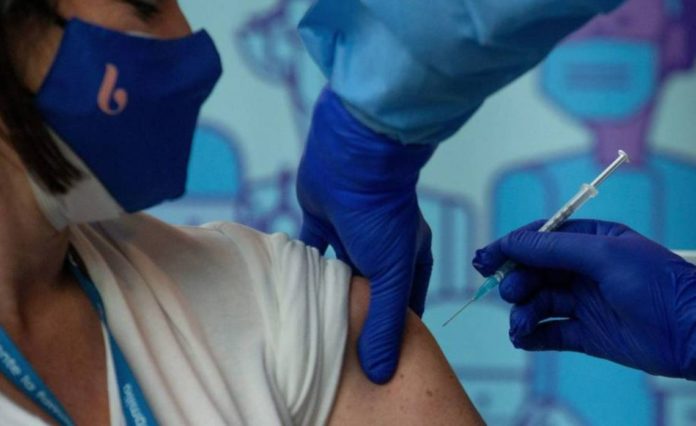The fear of potentially serious reactions can complicate the global strategy to immunize the population against the coronavirus. The U.S. scientists, including Harvard University, explain how to get vaccinated safely
Having recovered from the initial knockout after the shock of the SARS-CoV-2 coronavirus in the first pandemic months, the entire world clung to the hope that scientists would develop an effective vaccine.
By the end of the year, Moderna, Pfizer-BioNTech, Oxford-AstraZeneca, Russia’s Sputnik, and China’s Sinopharm were ready for mass immunization of the population, an ambitious plan that all countries are finding it difficult to fulfil (as far as refers to the number of people who receive it), except Israel, which has already exceeded one million people vaccinated.
However, as the immunization strategy progresses, concern about possible adverse effects, fueled by reports of serious reactions suffered by some vaccinated, are causing many citizens to express their suspicion of receiving the vaccine (a figure that reaches 42% in the United States). And, precisely, this is where experts have detected a critical point because if an important part of the world population is not immunized, the coronavirus can continue to roam at ease.
First thing: reassure
From this perspective, the interest in the work carried out by a team of allergists from different American universities, led by Aleena Banerji, clinical director of the Allergy and Clinical Immunology Unit of the Massachusetts General Hospital (MGH) and associate professor at the School of Harvard Medicine. The experts have examined all the information that exists about the Pfizer-BioNTech and Moderna vaccines – which are the ones that, for now, are being administered in most countries – to reassure the entire population about their safety, and, particularly, people allergic, given the disparity of criteria between different countries when it comes to immunizing them.
The UK drug regulator has advised that people with a history of a severe allergic reaction (anaphylaxis) should avoid the covid-19 vaccine (hope to approve soon a monoclonal antibody that would confer instant immunity).
- Brief Anger Hampers Blood Vessel Function Leading to Increased Risk of Heart Disease and Stroke – New Study
- New Blood Test Pinpoints Future Stroke Risk – Study Identifies Inflammatory Molecules as Key Biomarker
- Enceladus: A Potential Haven for Extraterrestrial Life in its Hidden Ocean Depths
- New Experiment: Dark Matter Is Not As ‘DARK’ As All We Think
- Scientists in Fear of This New Predator From Red Sea Eating Native Species in Mediterranean
On the contrary, after a detailed review of data related to allergic reactions, the US FDA recommends postponing it in individuals who have had severe allergic reactions to any component of it. For its part, the Centers for Disease Control and Prevention (CDC) indicates that all patients are observed within 15 minutes of vaccination by health workers who can identify and control such reactions. In any case, US agencies do not propose to allergy sufferers to avoid vaccination.
Stratify risks
After collecting and analyzing the data, the team led by Banerji advocates stratifying risk: first, so that people with a history of allergy receive their first vaccine safely and, second, for those who have had a reaction after the administration of the first dose, as described in the work, which has been published in the Journal of Allergy and Clinical Immunology.
“As allergologists, we want to encourage vaccination by ensuring to the public that both FDA-approved COVID-19 vaccines are safe. Our guidelines are based on recommendations from U.S. regulatory agencies and offer clear steps to the medical community on how to administer both doses in people with an allergic history,” Banerji says.
The study highlights that allergic reaction to vaccines are rare, with a rate of 1.3 cases per 1 million people, a figure they expect to be the same for the Pfizer-BioNTech and Moderna COVID-19 vaccines. Allergists stress that vaccination centers will monitor all patients for 15 to 30 minutes to treat any allergic reactions that arise.
The study’s authors recommend that individuals with a history of anaphylaxis to an injectable medication or vaccine containing polyethylene glycol or polysorbate consult with their physician before getting vaccinated. However, those with severe food allergies, oral medications or latex can receive covid-19 vaccines and it is completely safe.
The most common side effects observed after receiving Pfizer-BioNTech and Modern vaccines in clinical trials are: pain at the injection site, tiredness, headache, muscle or joint pain, chills and fever, reactions that are common in other vaccines, such as flu.
